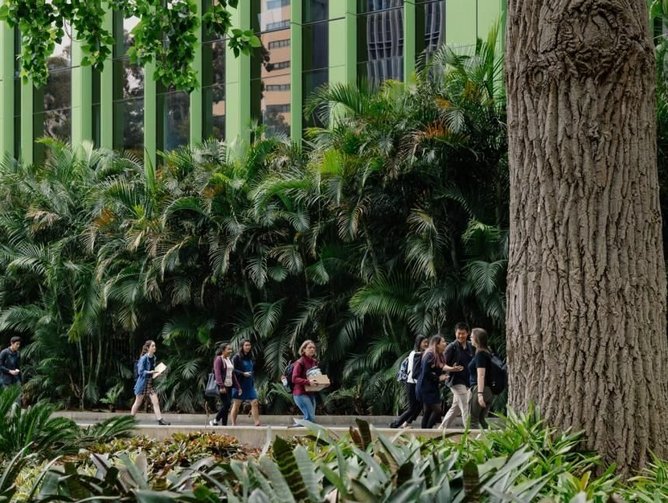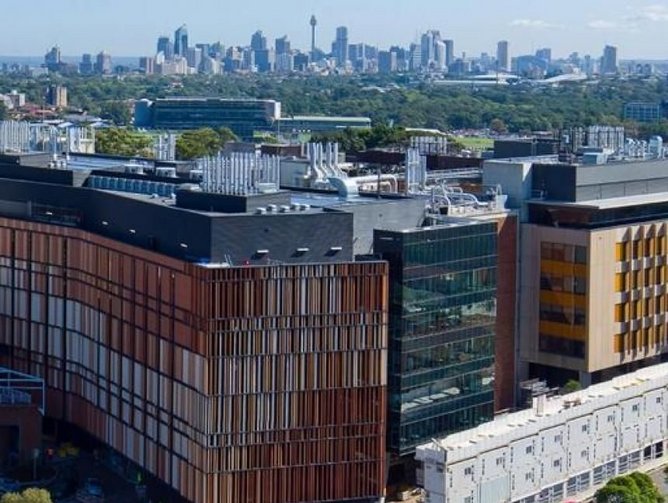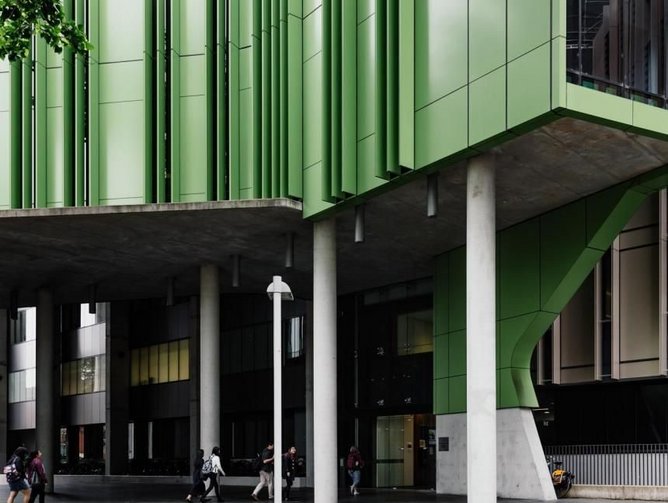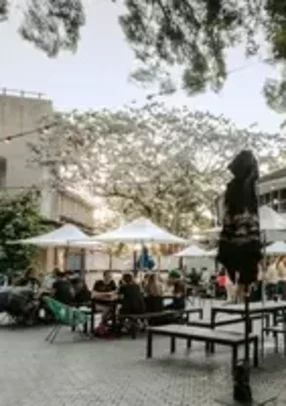Established in 1949, UNSW is a diverse university with over 60,000 students, with more than 23,000 international students.
UNSW has set its 2025 Strategy to become a “global university improving and transforming lives through excellence in research, outstanding education and a commitment to advancing a just society” – UNSW 2025 Strategy. Strategic priorities for the university include: academic excellence, social engagement and global impact.
Paul Royds, Head of Estate Management Procurement, has had a broad career of over 14 years across procurement, consulting and business development; he began his career at UNSW in 2018. The University’s vision, broader altruistic objectives and large pipeline of new developments across the estate management portfolio attracted Paul to the University, giving him the chance to be a part of “something bigger than the usual corporate environment.”
Sustainability at UNSW
Underpinning much of what Paul does for procurement at the University is driving commercial value across the value chain. This includes supporting the implementation of sustainable practices across the estate management portfolio “to promote goods and services with the lowest environmental impact, but ultimately with the greatest economic and social benefits” says Paul, “it’s just smart business […] It’s about driving long-term commercial value.”
Fundamentally, Paul sees sustainable procurement being about long-term risk management and supplier partnering. Sustainability, he adds, is “a business imperative rather than something nice to have.” In order to drive sustainable outcomes, organisations need to understand cost drivers and be able to identify critical costs and risks to the supply chain. Paul goes on to say that, ultimately, for UNSW it’s about focusing on “understanding those factors and cutting practical deals that drive long-term economic, social, and environmental benefits”. For example, by 2020, “UNSW will become the first university in the world to have 100% of its energy powered by photovoltaic solar energy,” with its solar panel farm located in regional NSW nearing completion. The tripartite arrangement of bringing together a retailer, developer and corporate will allow UNSW to achieve its goal of becoming carbon neutral.
Since 2018 Paul has overseen the development of a new category framework for construction and facilities management which focuses on ‘whole of life perspectives’. By promoting category management, procurement is attuned to industry cost drivers and is able to drive sustainable commercial value across the value chain to promote sustainable outcomes within estate management. This includes developing and implementing “agile sourcing strategies, evaluation plans and negotiation approaches that, […] focus on sustainable procurement practices” to challenge architect specifications, review materials, apply fit for purpose contracting models and promote outcome-based procurement. Paul has also established new panels and partnerships with architects, engineers, builders and consultants that are aligned with the University’s sustainability objectives
For UNSW, technology plays a key role in driving sustainability narratives. “Ultimately technology is really about removing waste, improving time, and driving project efficiencies,” says Paul, with advancements in augmented and virtual reality and building information modelling (BIM), these technologies drive collaboration and support sustainable design and preconstruction visualisation.
Paul believes the biggest challenge for sustainable procurement is the view that it is a ’greenwashing’ exercise that is impractical and costs more. To overcome these challenges, businesses need to pivot their projects towards ‘whole of life perspectives,” says Paul. “Everything that we do in construction has 40/50-year timeframes. It's that whole of life perspective that is key; yes you might pay higher capital costs today, but if you can pay a bit more now, you're going to save on your operational costs over the life of that building; which ultimately leads to more efficient and flexible buildings.”
Working with partners at UNSW
When it comes to working with partners, UNSW looks to organisations that will add commercial value to the University as well as drive value across social and environmental factors. “Working with other ethical and sustainable companies that are committed towards the same things that we are committed to,” will drive sustainability and efficiency says Paul. Such partners include Fuji Xerox Australia who work across a number of areas at the University, but “ultimately from a partner perspective, it's their foundations, which are focused on sustainability, that align to our own. Even simple things, like all the printer cartridges that we use at the University are fully 100% recyclable,” says Paul.
Key trends and big disruptors in procurement
To remain relevant Procurement must continue to evolve as strategic partner. If it cannot deliver ‘cost benefits to an organisation and harvest those benefits, emerging technologies and ‘buzz-word’ strategies will not save it. Key trends in estate management procurement will be ensuring that whole of life consideration is embedded into building designs and technology leveraged to drive construction and operational efficiencies. Other trends that procurement functions will need to remain on top of is emerging technologies (automation & AI), modern slavery reporting, Indigenous procurement and ‘true supplier partnering’ where co-creation supports and enhances supply chains.
Over the coming decade Paul sees “a massive move towards localisation rather than globalisation,” for procurement. “With the advancement of robotics increasing disruption of labour costs will restructure many supply chains.” Additionally, Paul sees subscription models and the circular economy playing a big role in disrupting supply chains, as well as skill shortages and natural resource depletion impacting many industries.
The future of UNSW
Looking to the future, UNSW aims to align its procurement with international ISO 20400 standards by 2022 and stay on track for its 2025 Strategy by continuing to generate new ideas and apply its innovations practically. “We've got a unique opportunity to change supply chains and drive those improvements,” says Paul. Procurement, he says “plays a vital role in articulating what sustainability means for suppliers and how it might impact their bottom line.” In order to stay relevant in procurement, “you've got to foster that culture of innovation, it's got to be agile, and it's got to be around continuous improvement to deliver ongoing value,” concludes Paul.





